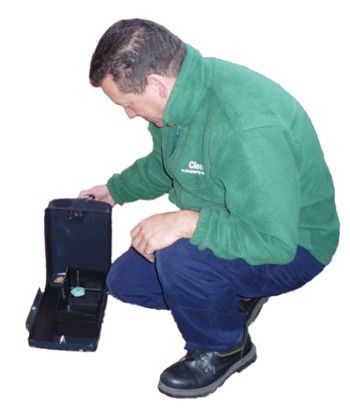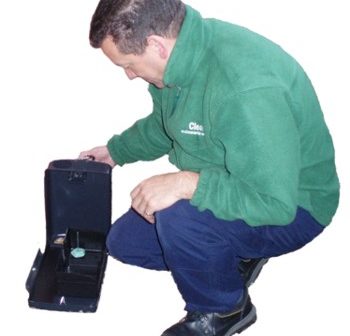The Campaign for Responsible Rodenticide Use (CRRU) has today, 24 July, launched the UK Rodenticide Stewardship Regime, under which all professional users must hold proof of competence in rodent pest control before being allowed to buy and use professional anticoagulant rodenticides.
| The official launch follows yesterday’s announcement by the Health & Safety Executive that the Government had agreed the high level principles that any rodenticide stewardship scheme must meet. The regime launched today by CRRU has been developed to meet those high level principles.
The announcement contains few surprises to regular readers of Pest magazine and the Pest website, where we have charted the ups and downs of stewardship regime development since July 2013. There are, however, a couple of subtle changes from what has been announced previously. Firstly, stewardship will now apply to all first-generation anticoagulant rodenticides (FGARs) as well as second-generation anticoagulant rodenticides (SGARs), hence the regime is now simply called the Rodenticide Stewardship Regime. This is not unexpected as the FGARs also fail the various human and environmental safety tests which would normally mean a product was banned within the EU, they just do so rather less spectacularly than the SGARs! |
 |
|
| Secondly, the date after which anyone without the necessary proof of competence will no longer be able to purchase and use professional rodenticides has changed. In previous reports it was 1 June 2016. It will now be 31 March 2017. This delay is to allow for the normal six month use-up period for products with old labels.
At present all rodenticides are going through a regulatory renewal process and, by 31 March 2017, only ‘stewardship conditions’ labelled products will be available. Until that date, anticoagulant rodenticides with pre-stewardship labels will remain available for use by non-certified users. However, as stocks are used up and products with new labels introduced, the availability of products for non-certified users will clearly diminish. The new legally binding wording to look out for on all new FGARs and SGAR labels will be “…for supply to and use only by professional users holding certification…” Sixteen training courses for the professional pest control sector have now been approved by CRRU as providing ‘proof of competence’, along with an approved update certification, all aligned to the CRRU Code of Best Practice. But what of the other user groups? The gamekeepers have been working to ensure they can meet the ‘proof of competence’ requirement. A rat control for gamekeepers course has been created jointly by the British Association for Shooting and Conservation (BASC), the Countryside Alliance (CA), the Game and Wildlife Conservation Trust (GWCT), the National Gamekeepers’ Organisation (NGO), the Scottish Gamekeepers’ Association (SGA) and CRRU, with BASIS as the awarding organisation. Gamekeepers who do not have a certificate will have two options. They can either, employ a professional pest control contractor, or purchase and use amateur rodenticide products. So that just leaves agriculture and it is a big group with estimates that there are over 90,000 agricultural users of rodenticides in the UK. Readers may recall that farming organisations were conspicuous by their absence in the list of supporting organisations on the inside front cover of the CRRU Code of Best Practice. But agriculture is now included in the UK Rodenticide Stewardship Regime. To comply with its requirements farmers could attend an approved training programme and gain the necessary certificate and, indeed, some may already have an appropriate qualification. The Agriculture and Horticulture Development Board (AHDB) is also developing a self-study online training option. Alternatively, like the gamekeepers, they could employ a professional pest control contractor, or opt to use amateur products. However, they also have a fourth option. As an interim measure until 31 December 2017, membership of a UK farm assurance scheme which has. amongst its standards. a requirement for an audited programme of rodent pest management, will be accepted as ‘proof of competence’. |
||




